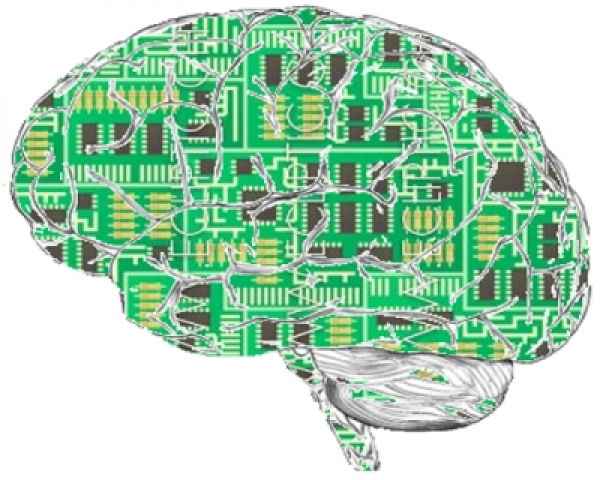Can big data analysis help save the lives of patients?

Today, big data is in trend and the same big favor. Recently, Larry Page was noted in this area, who said that if there was more information about health status in the public domain, thanks to her analysis, next year it will be possible to save about 100,000 people. After the US National Security Agency, Google ranks second in terms of stored data. However, Paige probably was somewhat hasty with his assertion, especially in light of the fact that the large Google Flu Trends program ( official website ) showed low efficiency . Big data is not a magical tool that can solve all our problems, and Paige is unlikely to be able to save thousands of lives with their help.
Privacy issue
This is hampered by several factors. In itself, the idea of analyzing big data for the sake of preserving people's health and lives is very ambitious, but by no means should this be considered a simple task. Any question that involves the personal data of people requires a very well thought-out scheme for third parties to ensure access to information. The provision of big data for analysis requires mandatory anonymity so that it is not possible to compare information with specific people.
Globalization and the ubiquitous comprehensive collection of information about the population, in fact, became almost self-evident. Many public and private organizations daily accumulate huge amounts of information about users, including their behavior in the network. And the development of mechanisms for regulating the circulation of such information lies with state organizations. And the inevitable restrictions on the dissemination of personal data will be an obstacle in the good work of timely detection of diseases based on medical indicators.
')
Machine intelligence as an analysis tool

With his statement, Larry Page illustrated a false point of view about big data, characteristic of the powerful. From his words it can be concluded that it is the lack of public information that leads to the death of people as a result of certain diseases. But these are just emotions. It is likely that some of the deaths in the health care system can be prevented by giving the right information to the right people. However, it must be remembered that the discovery of such information involves the provision of access to large databases for various organizations. At the same time, there are no arguments in favor of the fact that, in itself, providing access will provide a “meeting” of the necessary information with the right people.
Disclosing medical data may be useful, but unfortunately, for now there is no reason to believe that automated big data analysis itself will help to reduce mortality for medical reasons. Speculations on this topic are about emotions, not about reason. Without a scientific theoretical basis and further practical steps, such an analysis becomes meaningless.

Unfortunately, we are far from omnipotent, and our computer analysis tools are far from perfect. Even 60 years after the death of Alan Turing, his test remains inaccessible to all applicants for the proud title of "artificial intelligence." Even the last high-profile attempt with the participation of the program " Eugene Guzman ", imitating a 13-year-old teenager, turned into a failure. The tactics laid down by the author of the program in his offspring is similar to the one used 42 years ago in the Parry program, which was “pretended to be” a paranoid schizophrenic. You can also recall the program Eliza , which was difficult to distinguish by the style of communication from the doctor who adheres to the Roger's theory ( Theory of Karl Rogers ).
For many decades, tireless work has been carried out to create artificial intelligence, and more specifically, a trained machine. A lot of the brightest minds participated in such developments. Until recently, computing power has grown exponentially, and the worldwide network has given many examples of interaction between people who can train a computer. And despite all this, the meager progress proves how difficult it is to transform large amounts of data into the likeness of human intelligence.
Therefore, returning to Page, it is better to avoid making such loud statements about the potential of big data. The Google Flu Trends project tried to get information about the spread of the flu by collecting data on cases where people used search queries with the word flu. But we again and again faced with the fact that computers are not able to understand people and reliably imitate the features of our behavior.

As an example confirming this thesis, we can cite the fact that by September 11, 2001, the NSA was in possession of a volume of intelligence information sufficient to prevent a catastrophe. But this organization simply could not connect all the pieces of the mosaic in time . The revelations of Edward Snowden confirmed the suspicions that the NSA and the Center for Government Communications (the UK intelligence service ) constantly collect a variety of information about citizens of many countries. And not only they. Intelligence agencies have repeatedly stated that analyzing these big data more than once prevented serious terrorist attacks, but all these statements do not withstand scrutiny upon closer examination. Given the computational power available to the NSA, they would have to process information collected before the Internet era using artificial intelligence for 30 years. And there is no evidence that such studies have yielded concrete results. At least, such information is not publicly available.
Alas, the situation is such that the existing beginnings of “artificial intelligence” technology will not allow saving anyone's lives by analyzing big data from the healthcare sector. For the correct comparison of information, human ability to conduct interconnections is necessary, and computers have not yet acquired this ability, despite many years of efforts and financial injections from many corporations.
Diagnosis is not a simple comparison of test results and the current state of the body. To do this, doctors must ask patients the right questions and make decisions that affect their lives. Therefore, the analysis of big data in the field of medicine will only make sense when the computer will be able to independently “ask” the right questions and find answers to them in arrays of information.
Source: https://habr.com/ru/post/232213/
All Articles